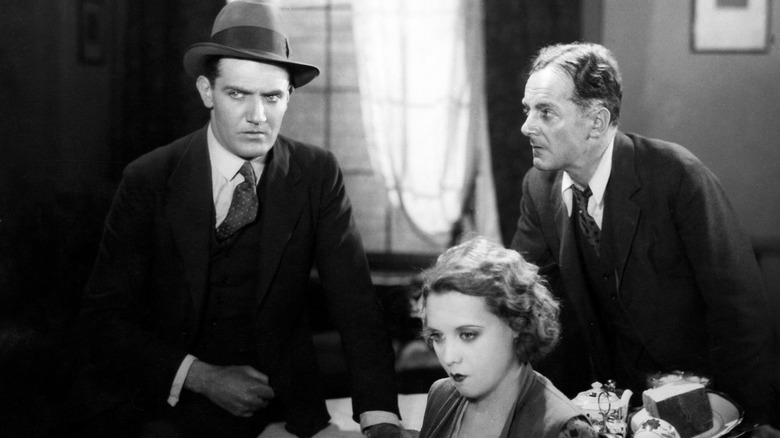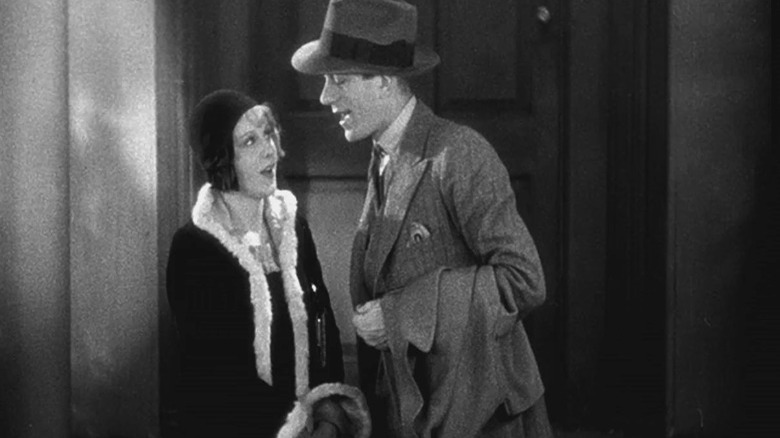The Daily Stream: Hitchcock's Blackmail Is A Bold Transition To The Talkie Era
(Welcome to The Daily Stream, an ongoing series in which the /Film team shares what they've been watching, why it's worth checking out, and where you can stream it.)
The Movie: "Blackmail"
Where You Can Stream It: Kanopy, Watch TCM
The Pitch: In Alfred Hitchcock's brisk and groundbreaking 1929 thriller, a young woman named Alice (Anny Ondra) deals with the convoluted, torturous aftermath of an attempted sexual assault. The plot of the 85-minute-long film is simple, but the execution is endlessly clever and surprisingly prescient for a film of its time. "Blackmail" famously begins as a silent picture, but evolves quickly into a talkie, with the most noteworthy — and loudest — transition to sound occurring at a pivotal, shocking moment. As the title indicates, Alice ends up embroiled in a blackmail plot, and her position as a woman leaves her vulnerable to the agendas of several men around her — some more well-meaning than others.
Ultimately, "Blackmail" is a deceptively by-the-book thriller that takes an impressively complicated view of female agency and sexual trauma, positioning a transgressive act against a backdrop of overwhelming, stifling patriarchal power. The movie is best-remembered as one of the first British features to use sound, and while the first to do something is often far from the best to do it, Hitchcock's adaptation of Charles Bennett's play employs its surprisingly meaningful audio elements to great effect.
Why it's essential viewing
Sometimes I wonder if people think movies about rape didn't exist before the #MeToo movement. America is pretty ahistorical in general, but we've grown especially ignorant when it comes to addressing sexual violence. Any movie that talks about sexual assault, harassment, or even toxic masculinity is rubber stamped with a #MeToo label, as if it could only exist now. The fact of the matter is, films that treated these topics seriously have existed for pretty much as long as the medium itself. Despite its directors own alleged culpability in such violence, "Blackmail" is undoubtedly one of them.
It still feels a little bit miraculous, though, that a film like "Blackmail" was made nearly 100 years ago. The movie has all the aesthetic touchpoints of 1920s cinema, but it's more darkly ironic than many of the films that are famously associated with the era, and more frank in its themes as well. After her attempted rape, Alice simply wants her life to be back the way it once was, but there's no turning back from the traumatic and boisterously loud world she's been ushered into. It's appropriate that this is among the first major talkies in British history as it is, in a very literal way, a movie about speaking up.
Hitchcock famously released two versions – one with sound and the other without – but the film's visuals are arresting regardless of which you watch. A chase scene set at the British Museum toward the end is among its most famous moments, and for good reason. The auteur isn't exactly firing on all cylinders here, as it was early in his career and the transition to sound isn't flawless, but "Blackmail" remains an arresting and sharp thriller and an important piece of film history.

